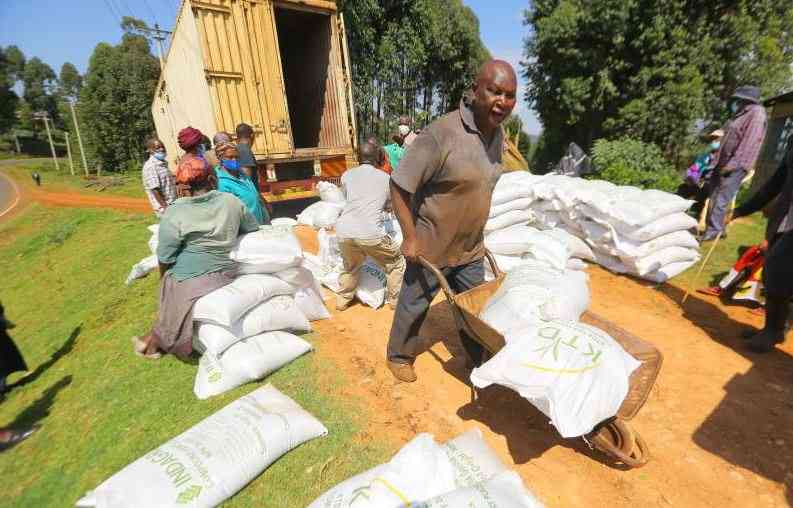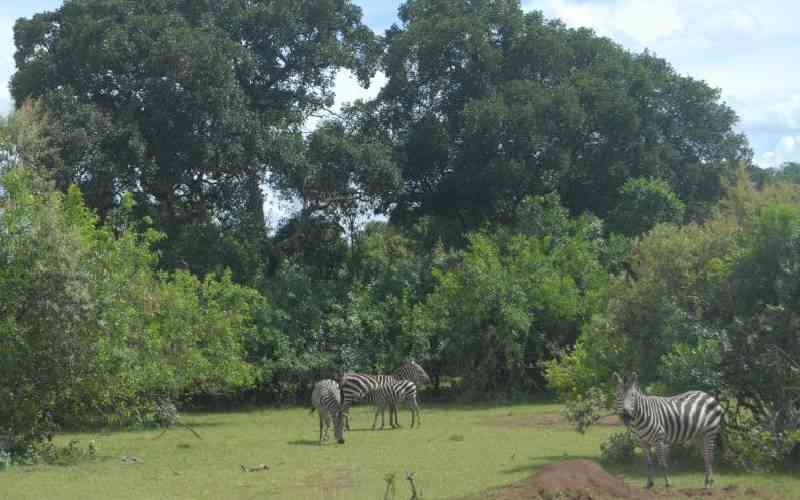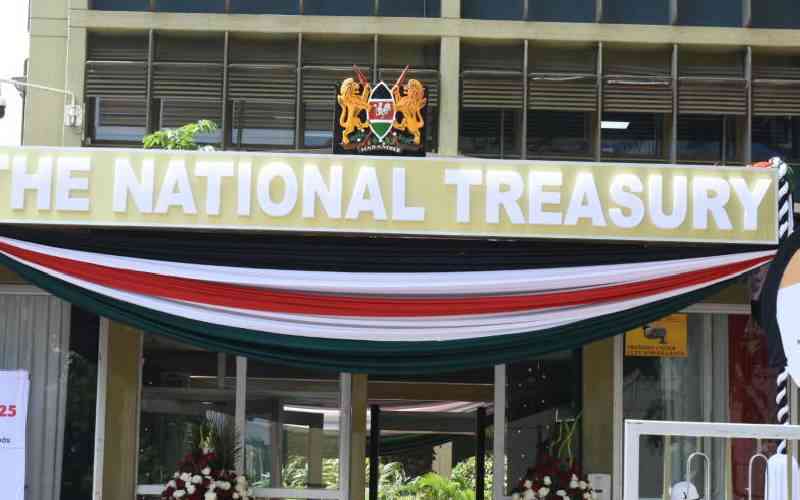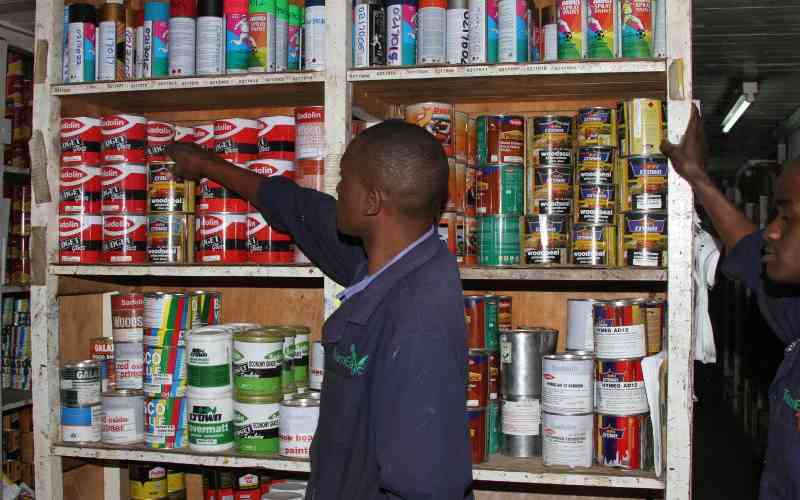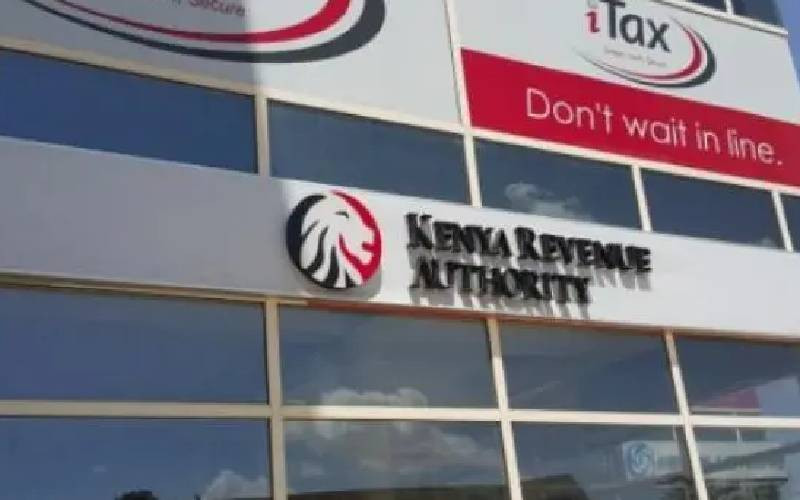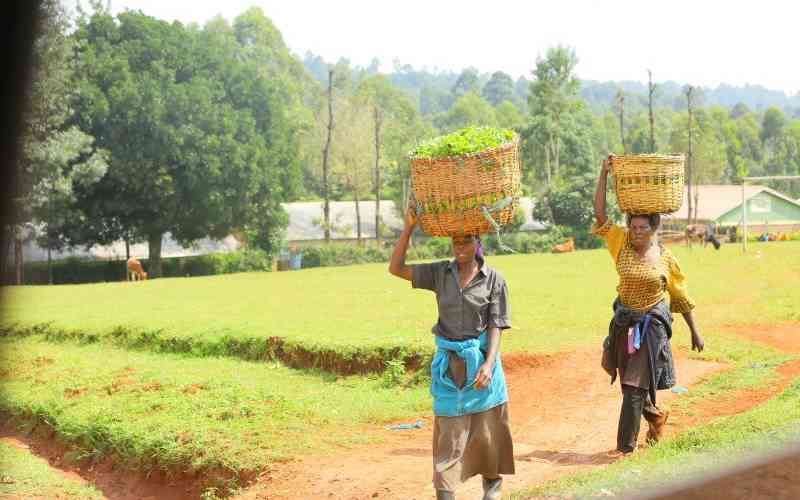
Kenya is aiming to become the first African country to certify its tea as low carbon, a move stakeholder in the tea industry note could double export earnings and significantly enhance the income of over 700,000 small holder farmers.
The initiative is expected to increase tea export revenue from the current Sh215 billion to Sh440 billion with farm gate prices rising from Sh64 to Sh90 per kilogramme and as a result transforming the rural economies.
Low carbon refers to the reduction of carbon dioxide emissions. Carbon Dioxide is a major greenhouse gas that contributes to global climate change and is released through human activities.
According to stakeholders from Kenya Tea Development Agency (KTDA), Food and Agriculture Organisation (FAO) and Ministry of Agriculture, the project aims at realising a more efficient, productive and low carbon tea.
The expected impact is a resilient low-carbon tea sector contributing to achieving Kenya's climate action goals.
At Nyansiongo tea factory in Nyamira County, where they produce the black CTC tea—oxidised tea manufactured through cutting,tearing and curling machine—they are already doing a lot towards low carbon production.
Factory manager Daniel Machara says the they have made some efforts towards low carbon production such as getting smart grown cultivars for tea production.
He adds that in processing the factory is using technology which is low in carbon production, including co-using briquettes with firewood.
"Cofiring is a process where instead of using purely firewood, we are using waste which has been compacted into briquettes under high pressure and temperature. We combine them at a ratio of 75 to 25 per cent firewood into briquettes," he explains.
They also have a compact wetland which recycles the water from the effluent.
"Apart from cofiring, we also do elaborate preventive maintenance that ensures machinery used at the factory is emitting less waste and other than the recycling there is use of preventive maintenance and a vehicle replacement policy whereby we replace the vehicles and machinery to ensure they are in good condition," Machara says.
"We embrace any technology that will give us efficiency. Some of the technologies are cost effective because we are using less money.
"The most important thing is our contribution into conserving the environment. We understand the dangers of global warming and so if we don't align we may have challenges in tea production."
Nyansiongo and Matunwa tea factories have 18,000 farmers with 29,000 bushes and their annual production is 29 million green leaf tea.
Stay informed. Subscribe to our newsletter
KTDA general manager Sudi Matara says Kenya must aim to decarbonise operations across the tea value chain.
He says the decarbonisation journey must begin at the production stage by replacing the 60-year-old tea variety that is currently being grown by the over 700,000 smallholder tea farmers in the country.
Already, KTDA has come up with new tea varieties that it says are high in yield and low on carbon footprint.
"Our tea is moribund and not high yielding, but through the research institute, we have all these clones that fit into different ecological zones," the general manager says.
"So already we have those ones, but our problem has been how these smallholder farmers replace this tea, knowing they would lose income for about two to three years.
"Those are the challenges we need to look into, and that is why we look at other options such as diversification by helping them diversify."
Kenya is conducting feasibility research on green tea production in partnership with China and German governments that will involve 71 tea factories as a pilot project.
The project aims to ensure that small-scale farmers produce low-carbon tea, and will come up with solutions that will help or bring about better income to smallholder farmers.
"This strategy once to take especially smallholder farmers to the next level and this is where sustainability kicks in because we want to take care of the planet and ensure the planet gives us a conducive environment to grow tea," says Matara.
According to Matara, in terms of decarbonising their operations, 17 KTDA managed factories are on their own grid and do not depend on Kenya Power to give electricity and as a result cost of production, and carbon emissions have gone down because of the reliable source of energy.
"We have also gone to solarisation as KTDA and done experiments around preheating to reduce the amount of firewood used. We also have interventions like co-firing with brikates, where industrial brikates are made from management wastes with the right ratios. In the future, we will do more to ensure we are low carbon in terms of production," he adds.
Dr Barrack Okoba, FAO project manager, says the project is also testing the feasibility of using blockchain technology which will enable global consumers to trace a pack of tea back to the specific farmer and confirm that it was grown using verified low carbon practices.
Dr Okoba notes that tea was selected because it remains Kenya's leading foreign exchange earner.
"We understand that these farmers' livelihoods revolve around tea and therefore trying to come up with solutions would be important, especially where production will be sustained, the environment protected, and incomes increased. We are looking into whether there is an opportunity for the buyers to value this effort and pay a premium price on the low-carbon tea that has been certified," says Okoba.
Kubok Leonard, the deputy director of crop resources management from the State Department of Agriculture, argues that the industry is crucial and central to the country's economy.
He notes that the driving force is to mitigate against climate change and ensure sustainability by coming up with practices that will reduce the cost of production.
"For some time now, our farmers have suffered from the increasing cost of production. There is a need for on-farm profitability, and of course, we are a global leader in tea production and technology, and we must maintain it to attract a wider market," he says.
Tea Board of Kenya chief executiveWilly Mutai says there is need to have the certification of low-carbon tea to align with the market, as it is the highest selling tool because it helps by doubling the selling price which earns better income to farmers.
Mutai notes that consumers are now using many tools to gauge the tea being produced, including looking into issues of climate mitigation before they purchase tea and correcting governance within the production circle, among other crucial issues.
He says once they are done with the pilot project in the more than 70 tea factories, they will roll it out to other counties.
